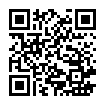Формирование и трансляция традиционных ценностей в современной многопоколенной семье
Научная статья
Аннотация
Литература
2. Дементьева, И. Ф. Трансформация ценностных ориентаций в современной российской семье // Вестник Российского университета дружбы народов. Серия: Социология. 2004. № 1 (6–7). С. 150–160. EDN HRREFJ.
3. Русецка, А. М. Формирование культурных ценностей у ребенка в польской семье : автореф. дис. … д-ра пед. наук : 13.00.02 / Русецка Ада Мария ; Российский государственный социальный университет, Москва, 2005. 42 с.
4. Акутина, С. П. К проблеме классификации семейных духовно-нравственных ценностей // Известия Российского государственного педагогического университета имени А. И. Герцена. 2009. № 94. С. 9–15. EDN JWSRET.
5. Рейтер, К. А. Современная российская семья как транслятор культурных ценностей : автореферат дисс. … канд. филос. Наук : 24.00.01 / Рейтер Кирилл Александрович ; Волгоградский государственный медицинский университет, Волгоград, 2005. 23 с. EDN NIGTNZ.
6. Sun, Y. Inheritance of Traditional Family Values: A Comparative Study of Family Ancestral Shrines and Related Paintings of Lee Family / Y. Sun, H. Lo, J. Cao, R. Lin // Sustainability. 2022. Vol. 14, No. 12. Article 7188. DOI 10.3390/su14127188.
7. Бек, У. Общество риска. На пути к другому модерну / Пер. с нем. В. Седельника и Н. Федоровой ; Послесл. А. Филиппова. Москва : Прогресс-Традиция. 2000. 384 с. ISBN 5-89826-059-5.
8. Трофимова, И. Н. «Мегаполис» и «глубинка» как модели ценностных ориентаций и политических установок россиян // Социологическая наука и социальная практика. 2014. № 3 (07). С. 60–78. EDN SNLJBR.
9. Задворнова, Ю. С. Дифференциация домашнего труда в российской семье: гендерные стереотипы и современные тенденции // Женщина в российском обществе. 2014. № 1 (70). С. 51–58. EDN RYLFJN.
10. Клименко, Л. В. Семья в поликультурном пространстве Юга России: этногендерное измерение // Женщина в российском обществе. 2021. № 3. С. 99–116. DOI 10.21064/WinRS.2021.3.8. EDN CVAEEV.
11. Климовицкий, С. В. Цифровое неравенство и его социальные последствия / С. В. Климовицкий, Г. В. Осипов // Гуманитарные, социально-экономические и общественные науки. 2019. № 2. С. 47–51. DOI 10.23672/SAE.2019.2.26689. EDN ZASHNJ.
12. Кабайкина, О. В. Трансформация роли женщины в современном обществе: в семье и на работе / О. В. Кабайкина, О. А. Сущенко // Вестник Московского университета. Серия 18. Социология и политология. 2017. № 3. С. 140–155. EDN ZIVXRF.
13. Стародубровская, И. В. Кризис традиционной северокавказской семьи в постсоветский период и его социальные последствия // Журнал исследований социальной политики. 2019. № 1. С. 39–56. DOI 10.17323/727-0634-2019-17-1-39-56. EDN YOWMMF.
14. Медков, В. М. Семья / В. М. Медков, А. И. Антонов. Социологическая энциклопедия : В 2 т. Национальный общественно-научный фонд, Руководитель научного проекта Г. Ю. Семигин ; главный редактор В. Н. Иванов. Москва : Мысль. 2003. Т. 2. С. 394–396. ISBN 5-244-01017-4.
15. Цветкова, Н. А. Псковская область. Традиции русской семьи // Традиционные ценности семей народов России : атлас / Под ред. Г. И. Климантовой, Е. Ф. Лаховой. Москва : Квант Медиа, 2023. С. 58–68.
16. Тарасова, Е. О. Положительные и негативные аспекты проживания в многопоколенных семьях // Вестник Пермского национального исследовательского политехнического университета. Социально-экономические науки. 2020. № 1. С. 64–74. DOI 10.15593/2224-9354/2020.1.5. EDN NGENCZ.
17. Лобода, П. Е. Междисциплинарное исследование влияния пандемии COVID-19 на институты семьи и брака / П. Е. Лобода, Р. О. Прокудина // Социодинамика. 2022. № 6. С. 37–46. DOI 10.25136/2409-7144.2022.6.35580. EDN YCLYVI.

Поступила: 25.06.2024
Опубликована: 30.09.2024





